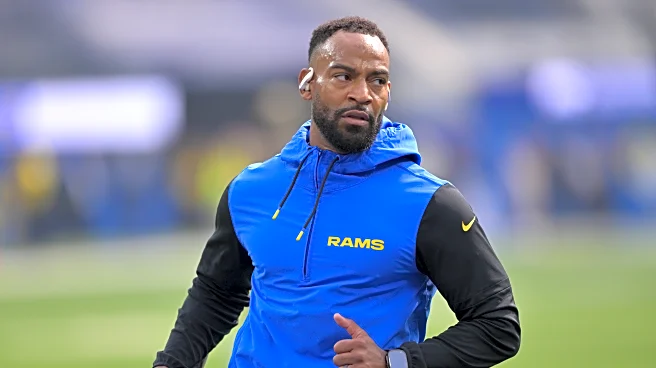What's Happening?
The hospitality industry has witnessed a significant rise in CEO compensation despite ongoing economic volatility. According to a recent study, the average CEO pay in the hotel sector increased from $9.8
million to $11.9 million year over year, driven primarily by long-term incentives. This trend contrasts with the stagnation in average annual salaries for U.S. hospitality industry employees, which rose by only 2.6% to just under $58,000. The CEO-to-average pay ratio has widened significantly, indicating a growing disparity between executive and employee compensation. Financially, companies in the sector have shown solid growth, with average market capitalization climbing to over $24 billion and average EBITDA reaching $2 billion. Notable CEOs such as Glenn Fogel of Booking Holdings and Josh Weinstein of Carnival have received substantial compensation packages, reflecting the industry's rebound and ongoing challenges.
Why It's Important?
The increase in CEO compensation amid economic uncertainty highlights the growing disparity between executive pay and average employee salaries in the hospitality industry. This widening gap could lead to increased scrutiny and pressure from stakeholders, including employees and investors, to address compensation equity. The focus on long-term incentives suggests a shift in how companies are rewarding their leaders, potentially impacting corporate governance and performance metrics. As the industry faces economic headwinds, including tariffs and decreased transaction levels, the financial health and strategic decisions of these companies will be crucial in navigating future challenges. The disparity in pay may also influence labor relations and collective bargaining efforts within the industry.
What's Next?
As the economic landscape continues to evolve, hospitality companies may need to reassess their compensation strategies to ensure alignment with performance and stakeholder expectations. The impact of tariffs, international travel, and government layoffs could further influence the industry's financial stability and growth prospects. Companies may face pressure to balance executive compensation with broader economic challenges and employee demands for fair wages. The ongoing evaluation of CEO pay relative to performance metrics will be critical in determining 'fair pay' and maintaining investor confidence. The industry's response to these challenges will shape its future trajectory and competitive positioning.
Beyond the Headlines
The growing disparity in compensation within the hospitality industry raises ethical and cultural questions about income inequality and corporate responsibility. As companies navigate economic challenges, the focus on executive pay may prompt broader discussions about equitable compensation practices and the role of corporate governance in addressing stakeholder concerns. The industry's approach to these issues could influence public perception and impact its ability to attract and retain talent.










